As a millennial, you are at a crucial point in your financial journey. Whether you’re just starting your career, navigating student loan debt, or planning for the future, organizing your finances now will set the stage for financial success later in life. With the financial landscape constantly evolving and new tools and resources available, 2025 is the perfect time to take control of your financial future.
In this article, we will explore effective strategies for organizing your finances, practical tips to improve your financial health, and steps you can take today to ensure you’re on track for long-term financial stability. Whether you’re looking to save more, invest for the future, or reduce debt, these tips will help guide your financial planning.
Understand Your Current Financial Situation
The first step to organizing your finances is gaining a clear understanding of where you stand financially. Take a comprehensive look at your income, expenses, debts, and savings. This will give you a baseline to work from and help you make informed decisions moving forward.
Create a Budget
A budget is an essential tool for managing your finances effectively. By tracking your income and expenses, you can see exactly where your money is going and identify areas where you can cut back or redirect funds.
- Track Income and Expenses: Start by listing all your sources of income (salary, side gigs, investments, etc.). Next, track all of your monthly expenses, including rent, utilities, groceries, transportation, and entertainment. Many apps and tools, such as Mint or YNAB (You Need a Budget), can help you monitor your spending.
- Set Financial Goals: Once you understand your income and expenses, set financial goals based on what you want to achieve. These could include paying off debt, building an emergency fund, or saving for retirement. Setting clear goals will give you something to work toward and help you stay focused.
Evaluate Your Debt
Many millennials carry student loans, credit card debt, or personal loans. It’s essential to evaluate how much debt you owe and create a plan to pay it off. The goal should be to reduce high-interest debt first, such as credit card balances, while making minimum payments on lower-interest loans like student debt or mortgages.
- Debt Avalanche Method: Focus on paying off the debt with the highest interest rate first. This method helps you save money on interest in the long run.
- Debt Snowball Method: Alternatively, you may prefer to pay off the smallest debts first. This method provides psychological wins as you pay off debts quickly.
Understanding your debt situation is critical for managing your finances effectively, and once you have a strategy in place, you can start working toward becoming debt-free.
Build an Emergency Fund
An emergency fund is one of the most important financial safety nets you can have. It serves as a buffer against unexpected expenses like medical bills, car repairs, or job loss. Without an emergency fund, you may be forced to rely on credit cards or loans, which could lead to financial strain.
- Start Small: Aim to save at least $1,000 for your emergency fund to begin with. This amount will cover many small emergencies.
- Gradually Increase: Once you’ve saved $1,000, try to build up your emergency fund to three to six months’ worth of living expenses. This will provide more comprehensive financial security.
To build your emergency fund, consider setting up automatic transfers from your checking account to your savings account. This “pay yourself first” strategy ensures that you prioritize saving.
Save and Invest for the Future
Once you’ve tackled budgeting, debt, and emergency savings, it’s time to focus on saving and investing for your long-term financial goals. Millennials face unique challenges when it comes to saving for retirement, given the rising costs of living, student loan debt, and the unpredictability of the job market. However, it’s crucial to start investing early to take advantage of compound interest and build a solid foundation for the future.
Start Contributing to Retirement Accounts
The earlier you start saving for retirement, the better. Even if you can’t contribute large amounts, consistent contributions over time can lead to significant growth. Consider these options:
- 401(k) Plans: If your employer offers a 401(k) plan, make sure you contribute, especially if they offer a match. Employer contributions are essentially free money and should not be left on the table.
- Individual Retirement Accounts (IRAs): In addition to a 401(k), consider opening a traditional or Roth IRA. These accounts allow you to grow your money tax-free or tax-deferred, depending on the type.
Start by contributing what you can, even if it’s just a small percentage of your income. The key is consistency and starting as early as possible to benefit from compound interest.
Diversify Your Investments
Investing in a diversified portfolio is essential for managing risk and maximizing returns. Millennials should consider investing in a mix of:
- Stocks and Bonds: A well-balanced portfolio should include a mix of stocks (for growth) and bonds (for stability).
- ETFs and Index Funds: Exchange-traded funds (ETFs) and index funds offer a low-cost, diversified way to invest in a broad range of assets.
- Real Estate: Real estate can be a good long-term investment, especially if you’re able to buy a home or invest in rental properties.
Start Small, Think Big
You don’t need a large amount of money to start investing. Thanks to modern investment platforms, millennials can begin with as little as $50 or $100 per month. By starting small and staying consistent, you’ll benefit from the power of compounding over time.
Make Use of Technology to Organize Your Finances
One of the best things about managing your finances as a millennial is the availability of digital tools and apps that can help you stay organized and on track. Here are some great resources to help you:
- Budgeting Apps: Apps like Mint, PocketGuard, or YNAB can help you track your expenses, set budgets, and monitor your progress toward your financial goals.
- Investment Platforms: Platforms like Robinhood, Acorns, and Betterment make it easy for millennials to start investing with minimal fees.
- Debt Repayment Apps: Apps like Debt Payoff Planner and Undebt.it help you set up a strategy to pay off your debt and track your progress.
Using these digital tools can help you automate your finances, making it easier to stay disciplined and on track with your goals.
Focus on Financial Education
The more you know about personal finance, the better equipped you’ll be to make informed decisions. Invest time in learning about topics like:
- Budgeting and saving
- Investing strategies
- Credit scores and loans
- Taxes and tax-saving strategies
- Estate planning and insurance
There are plenty of free and low-cost resources available online, including blogs, podcasts, YouTube channels, and courses. The more educated you are, the more confident you’ll feel in making financial decisions.
FAQs
1. How much should I be saving each month as a millennial?
The amount you should save each month depends on your income, expenses, and financial goals. A good rule of thumb is to aim for saving at least 20% of your income. This can include contributions to your emergency fund, retirement accounts, and other savings goals. However, even saving a smaller amount consistently is a great start.
2. Is it too late for millennials to start investing for retirement?
It’s never too late to start investing for retirement, but the earlier you start, the better. Even if you’re just beginning your career, contributing to a 401(k) or IRA can help you build wealth over time. The power of compound interest works best when you give your money more time to grow.
3. What should I do if I have student loan debt?
If you have student loan debt, focus on paying off high-interest loans first. You can use the debt avalanche method to save on interest or the debt snowball method for motivation. Additionally, look into income-driven repayment plans or refinancing options to make your payments more manageable.
Organizing your finances as a millennial is all about setting clear goals, staying disciplined, and using available tools and strategies to manage your money effectively. By budgeting, saving, investing, and educating yourself, you can build a solid financial foundation that will serve you well in the years to come. Start now, and you’ll be well on your way to financial success in 2025 and beyond.







